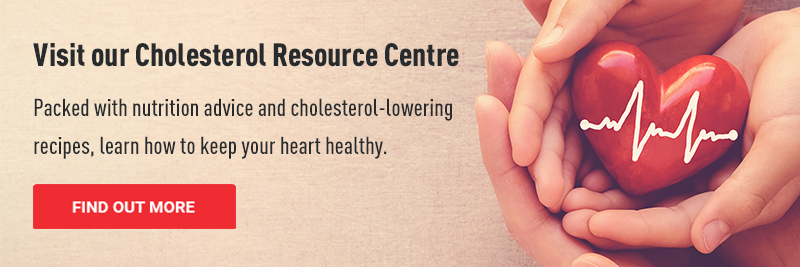
The best foods to eat for a healthy heart
In New Zealand, nearly 60 women die from heart disease every week, making it New Zealand’s single biggest killer. The scary reality is you can be young, fit and healthy, but still be at risk.
Many of the risks that contribute to heart disease are silent, like high blood pressure, high cholesterol, and vascular complications in pregnancy.
There are some risk factors that you can’t control like genetics, a family history of heart disease, sex and age - around menopause the risk of heart disease increases for women and continues to go up.
But there are a range of healthy lifestyle habits you can adopt to improve blood pressure, cholesterol, blood sugars, sleep apnoea, weight and depression.
Cutting out smoking and reducing alcohol consumption top the list and these days, may seem obvious.
Download our free nutrition fact sheet for expert dietitian advice on heart health.
We asked the Heart Foundation Chief Advisor - Food and Nutrition, Dave Monro, for his top tips on ways to look after your heart health:
- Consistently eat good food: Eating well for your heart is not about a single superfood. The key is to regularly eat a combination of foods that are high in fibre, vitamins and minerals. That means loading up your plate with plenty of fruit and veggies and wholegrains. Scientific studies consistently link eating these foods to having a healthier heart.
- Lower salt intake: New Zealanders consume 8.5 grams of salt a day, well above the Heart Foundation’s recommendation of 5 grams. Cutting back on salt is less to do with the pinch you add when cooking and more to do with cutting out discretionary and highly processed foods. These foods can contain high amounts of salt, that is used for flavour and also as a preservative. A healthy diet with plenty of fruit, veggies, nuts and whole grains will naturally be lower in salt, which is a big tick for heart health.
- Cut saturated and trans-fat: Saturated fat is found in animal products and also coconut products, like the on-trend coconut oil. Lately, there has been a lot of mixed messages on fats with diets like Paleo and Keto advocating the health benefits of saturated fat. However, when it comes to your heart, there is strong and consistent evidence that switching saturated fat for plant sources of monounsaturated and polyunsaturated fats can lower your risk of heart disease and reduce ‘bad’ LDL cholesterol. These heart healthy fats can be found in nuts, seeds, avocados, and in vegetable oils like olive oil. It also important to limit trans fats as much as possible by avoiding processed and fried foods including biscuits, chips, pastries and pies.
- Go for wholegrains: Grain foods contain carbohydrate, which provides energy to fuel the body and brain. Wholegrain and high-fibre options are the best for heart health. Fibre helps the bowel work properly and improves cholesterol and blood glucose levels. In fact, evidence shows that eating more wholegrains is consistently associated with a 16-30% lower risk of heart disease. Aim for at three servings of wholegrains every day to support your heart health. Simple swaps like changing white bread to wholegrain bread or white rice to brown rice is a great way to get more wholegrains into your diet.
- Get moving: For a healthy heart, we should be aiming for moderate exercise every day. That means exercise that gets you puffing and your heart beating faster - a brisk walk, dancing, and even more vigorous household chores like window washing. Any exercise is better than none but ideally try for 150 minutes a week.
Finally, if you are unsure of your risk, take two minutes to complete the Heart Foundation’s My Heart Check Calculator. This is a simple tool that helps you understand your risk of heart attack or stroke by determining your heart age. The higher your heart age compared to your actual age, the higher your risk of having a heart attack or stroke in the next five years.
For more information check out the Heart Foundation website or speak to your GP.
Our nutrition fact sheets, created by accredited dietitians, provide the latest nutrition and lifestyle information to help you understand which foods are the best to eat. Click here to see the heart health nutrition fact sheets.

The latest nutrition advice, plus health and wellness tips delivered to your inbox monthly


.jpg?width=435&height=290&format=jpg&quality=95)